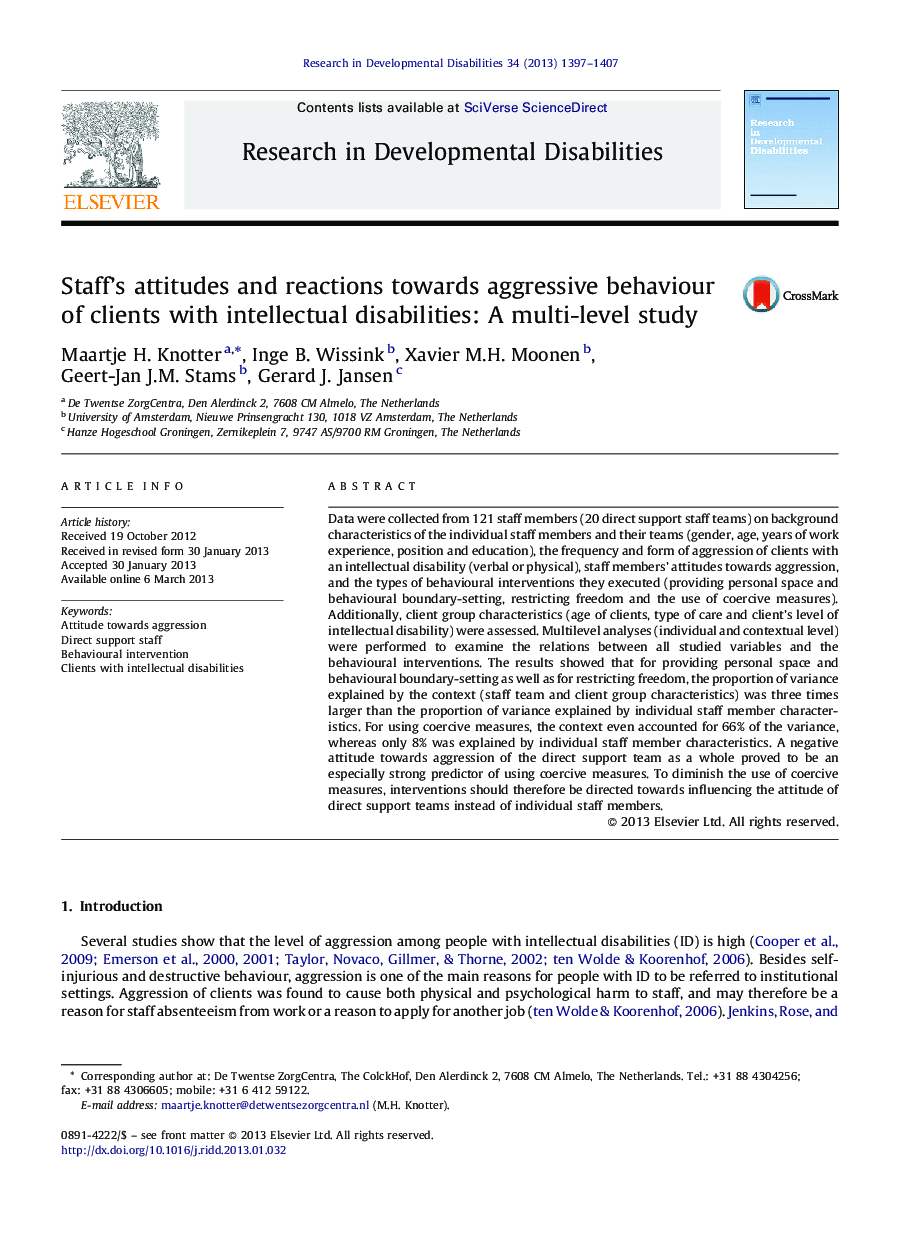| کد مقاله | کد نشریه | سال انتشار | مقاله انگلیسی | نسخه تمام متن |
|---|---|---|---|---|
| 371448 | 621924 | 2013 | 11 صفحه PDF | دانلود رایگان |

Data were collected from 121 staff members (20 direct support staff teams) on background characteristics of the individual staff members and their teams (gender, age, years of work experience, position and education), the frequency and form of aggression of clients with an intellectual disability (verbal or physical), staff members’ attitudes towards aggression, and the types of behavioural interventions they executed (providing personal space and behavioural boundary-setting, restricting freedom and the use of coercive measures). Additionally, client group characteristics (age of clients, type of care and client's level of intellectual disability) were assessed. Multilevel analyses (individual and contextual level) were performed to examine the relations between all studied variables and the behavioural interventions. The results showed that for providing personal space and behavioural boundary-setting as well as for restricting freedom, the proportion of variance explained by the context (staff team and client group characteristics) was three times larger than the proportion of variance explained by individual staff member characteristics. For using coercive measures, the context even accounted for 66% of the variance, whereas only 8% was explained by individual staff member characteristics. A negative attitude towards aggression of the direct support team as a whole proved to be an especially strong predictor of using coercive measures. To diminish the use of coercive measures, interventions should therefore be directed towards influencing the attitude of direct support teams instead of individual staff members.
► A team's negative attitude towards aggression determines behavioural interventions.
► The direct care context accounted for 66% of the differences in coercion.
► Staff's negative attitude towards aggression was associated with increased coercion.
► Attention to the characteristics of the team and clients in a group home is needed.
► Interventions should target the negative attitude towards aggression within teams.
Journal: Research in Developmental Disabilities - Volume 34, Issue 5, May 2013, Pages 1397–1407